Islam encompasses all the nobilities that every other religion has, compassion, love, justice, brotherhood, equality etc. but it also poses several dilemmas.
The dilemmas arise, as the values instilled by Islam were those needed for bringing order to a desert tribal society of the 6th century. The doctrines laid down for reforms prevent Islamic values from keeping pace with the evolving parameters of the rest of the world.
Right from the beginning Islam has been unfriendly to further reforms. Efforts in this direction were equated with apostasy, punishable with death. Nevertheless, there is ferment now in very limited circles that recognize the anachronism of some doctrines held sacred in Islam.
The most glaring differences lie in the very important spheres of freedom of expression, right to equality and sovereignty of Allah over everything. A very large majority of Muslims are reluctant for a compromise on these issues.
Rights to equality have been won after a struggle lasting several centuries during which the concept of democracy kept on continuously evolving. Magna Carta, Reformation and Renaissance were milestones in this journey that, however, is far from over even in democracies of today. While most democracies in their constitutions promise a bill of rights to their citizens, in practical terms democracy does not turn out to be equivalent to liberty. Democracy just ensures a right to a vote to every citizen at stipulated intervals but actual governance is quite often in the hands of vested interests, lobbies etc. Still, the situation is far better than the Islamic world that does not permit freedom of independent thought or conscience. Anyone who dares to exercise such liberty, like Salman Rushdie, is immediately targeted.
The Islamic world turns down gender equality also. In the earlier era women’s status was equated to property. Even today they are discriminated against in matters relating to inheritance, marriage, education, dress etc. Western cultures had also victimized women for long. They received their right to vote only after World War I. Since then, the feminist movement has opened many closed gates to women, diminishing their exploitation by masculine dominating society and introducing a paradigm shift. In the Islamic social, cultural and political milieu, women, as a class, remain far removed from liberation.
Islam imposes strict censorship on free expression of ideas. In this matter no meeting point exists between modern and Islamic thought. Democracies allow their citizens full liberties of expression and thought except in fields relating to public safety and morality. Responsible media in such countries exercise self-censorship so as not to offend Muslim sensitivities but Muslim intolerance does not keep itself bridled. This was most recently seen in reactions by Muslim people all over the world over the depiction of the Prophet in cartoons in a Danish newspaper. The Topkapi museum in Istanbul in Turkey had paintings, which had included the face of the Prophet. The paintings were withdrawn by 1970 but there had been no public outcry over the display. The Danish action was an exercise to test the principle of freedom of speech against Muslim intolerance. The point it sought to make was that immigrants must live by the cultural values of the land to which they immigrate. The nature of reactions would show that this was unacceptable to Muslims.
Undoubtedly, Allah of Islam, Ishwar or Paramatma of Hindus, God of Christians and Jehovah of Jews all refer to one and the same entity but only Islam explicitly prescribes subordination of everything to the sovereignty of Allah. A written constitution is the supreme law in a democracy but not in an Islamic country. No Islamic country can, therefore, be truly democratic in the modern sense. How can the preferences of an abstract entity be ever ascertained? The clerics in Islamic countries or elsewhere who claim authority to interpret Islamic scriptures become a very powerful section of the society under this principle. Their fatwas are often taken as having the authority of Allah behind them. The church and the state cannot separate in Islam, which status the Christian world secured after a long struggle over several centuries. Secularism will, therefore, always remain an anathema to the Islamic polity. To what extent secularism gets accepted by Muslims in India, thus, remains a moot question.
The gulf between the modern and the Islamic world, as of today, looks almost unbridgeable. The Muslim wonders why should he change and not the other world. This is a legitimate question. The debate to find an answer can be endless.
Trends in the Islamic world suggest a mood towards consolidation and a readiness for confrontation. The US and Israel are identified as common enemy against whom the entire Ummah needs to unite. Even if no unity manifests, each Islamic area in its own way is signaling a shift towards conservatism or radical Islam. In Palestine, a terrorist group, Hamas, has come out victorious by a mile through free and popular election. Turkey’s ruling party is Islamist. Its present Prime Minister has served a jail sentence for radical Islamic views. Turkey is no longer the secular haven that Kemal Ataturk had built after World War I. In Egypt, USA’s most committed ally in the Arab world, the Muslim Brotherhood, in recent elections, registered impressive and unprecedented gains. In Pakistan, after democratic elections, a combination of Islamists has taken complete control of one province, the North West Frontier Province, while in another, Baluchistan, Islamists rule in coalition with others. Both these provinces are hot beds of terrorist groups. Al Qaida and the Taliban seem to find secure shelter there. If a free vote is taken in the Islamic world, radical governments are likely to take power in most Islamic countries.
The chances of the chasm between Islamic world and the rest reducing seem to be bleak indeed. European nations are now seriously considering how to protect their native culture, block fresh immigration and reduce the scope of rights to the immigrants. Turkey’s aspirations to join the European Union, already encountering serious obstacles, may ultimately remain just a pipe dream.
While all Muslims are certainly not terrorists, Islamic terrorism receives inspiration from the Islamic ethos. That is the reason why while Al Qaeda is not to be found in every Muslim country, there are concentric circles of like minded people whose aims turn out to be identical and whose tactics surprisingly similar. Such groups then join horizontally and promote the ideals of International Islamic Front of which Al Qaeda is a constituent.
The Front identifies Christians and Jews to be inimical to Islam, and calls for their destruction. It seeks to establish Islamic Caliphates in all Muslim lands including those where Muslims were in power in the past such as Spain and India. There are elements in India like the banned Students’ Islamic Movement of India (S IMI), which sympathize with the objectives of the Front. An estimated 5000 modules are understood to have been set up in India with local support for terrorist and subversive action. No comfort should be drawn from the belief that no one from India has joined Al Qaeda.
It is a tragedy that most Indian political leaders view the Muslim citizens as just a vote bank, and overlook the dangers of Islamism. The infiltrants from Bangla Desh are now said to number two crores. Their presence in India constitutes the biggest threat to India’s national interests, bigger than that posed by the Maoists. The latter is an indigenous movement with no outside support and is the outcome of failure in governance and non-fulfillment of rural aspirations. From the Telangana movement of the 1950s the problem has existed for more that five decades. The Bangladeshi infiltration is comparatively recent, is supported from outside and its activists owe no loyalty to India. Several modules, referred to earlier, are to be found among them.
It is also tragic that a myopic view is taken of the causes of terrorist action. The recent bomb blast at Jama Masjid, Delhi, was characterized as anti-secular. The massacres in Doda in April.06 were described as intended to derail the peace process. That they all are a part of a larger design is either not comprehended or is sought to be wished away.
There is little evidence to suggest that the Muslims of the sub-continent think differentially, depending on the regions where they live. The near total elimination of Hindus in Pakistan and the ongoing similar process in Bangla Desh disclose a mindset, which must be assumed to be similar for all the Muslims inhabiting the sub-continent. The recent audiotape of Osama bin Laden, lumping Hindus with Christians and Jews, makes the situation unquestionably grimmer.
Samuel Huntington’s clash of civilizations seems to be looming into a reality. Definitive steps require to be taken to prevent materialization of the scenario. The nucleus has to be the band of reformist, modern and courageous Muslims, in India and world wide, who must be encouraged to speak out, through radio, tv, seminars and debates, about the ambiguities in Islam, inviting the silent majority in a movement of reforms, to make Islam contemporaneous. A movement as vigorous as Gandhiji’s Satyagraha or Martin Luther King’s anti-segregation campaign in the US alone can avert the calamity towards which the world seems to be headed. In this context it is worth reflecting that some Danes feel that the cartoon controversy has moved the Islamic society in Denmark forward at least by 300 years.
Article published on dated 15th July 2010
Author is former Chief of RAW

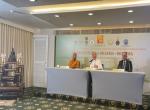
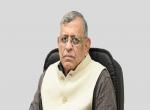
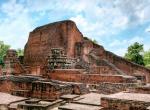

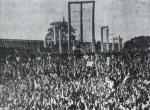
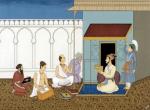

Post new comment